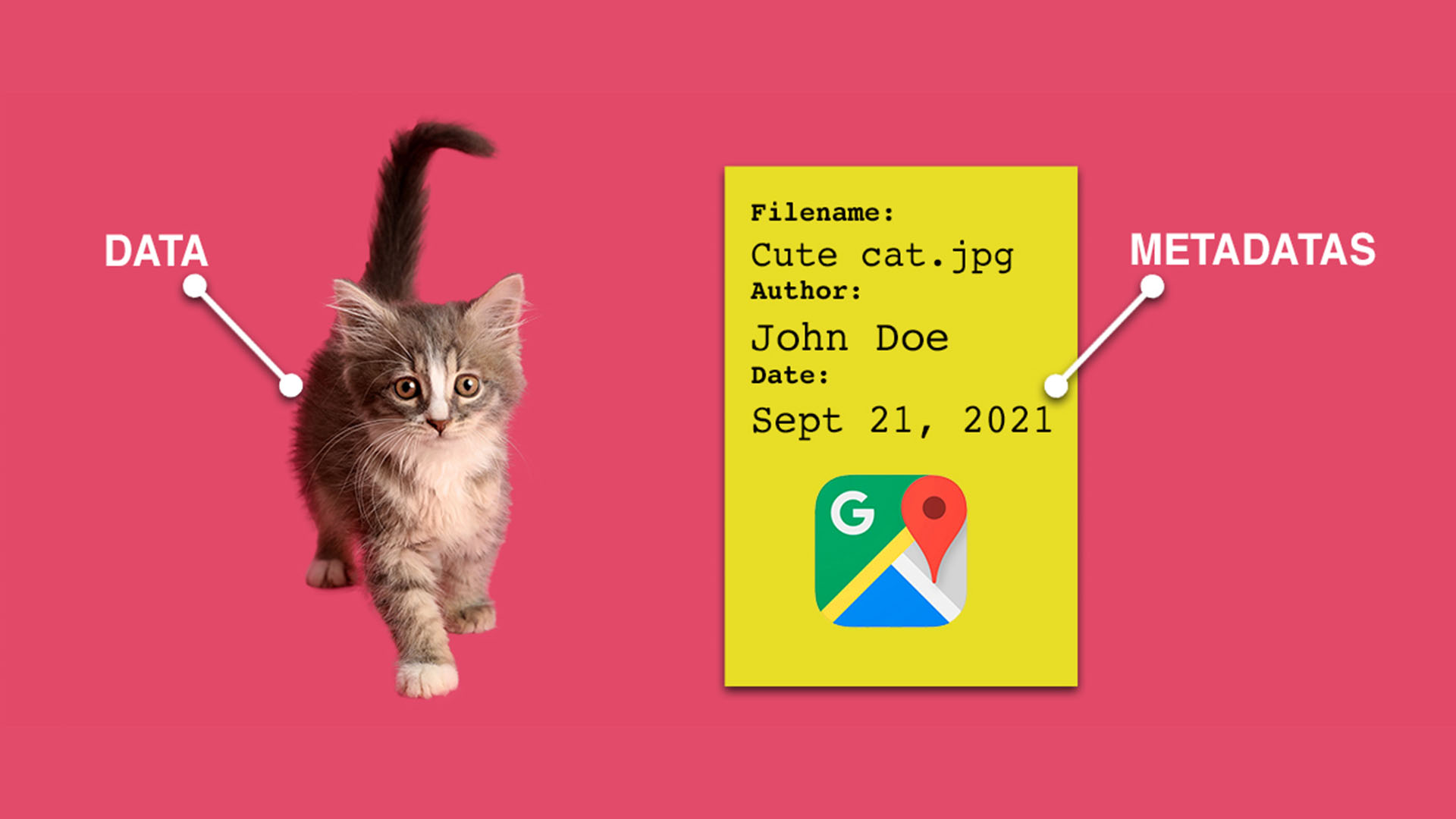
How Artificial Intelligence and Metadata Will Revolutionize the Future of Content Marketing
Did you know that by 2025, the global AI market is expected to hit over $190 billion? Moreover, over 60% of marketers consider artificial intelligence (AI) the most crucial aspect of their data strategy.
From automation and personalization to efficiency, AI is also changing the way content marketing works. Meanwhile, metadata allows businesses to produce organized, relevant, and visible content.
Whether you’re a business owner or a marketing manager, you need to know how both AI and metadata work and incorporate them in your marketing efforts to maintain your competitive advantage. Below, we’ll discuss what artificial intelligence and metadata are, how they will change the future of content marketing, and how your business can maximize their benefits, so keep scrolling!
What Is Artificial Intelligence?
The idea of a machine capable of independent and intelligent thought was not born during the 21st century. It was conceptualized way back in ancient Greece. Since then, human ingenuity has continued to flourish, leading to several technological milestones, including the practical application of artificial intelligence as we know it today.
AI refers to computers' attempt to think and understand like humans. Like how humans need to read and experience things to learn, AI systems require information access and pattern recognition to develop and cater to our specific inclinations. Modern AI systems can simulate human intelligence and adapt to person-specific nuances through machine learning and complex algorithms.
The technology has advanced to where AI systems have become virtual companions, which some already consider indispensable for their personal or commercial undertakings. From speech recognition, language processing, and data trend recommendations to automated stock trading and more, AI systems' use cases and proficiency continue to grow.
What Is Metadata?
While metadata looks like a complicated term that only tech experts or coders will understand, it’s a simple concept that we can immediately apply or identify in our daily lives.
In a nutshell, metadata refers to data that describes other data or information. It creates a summary of any data it comes in contact with. From public web pages, personal spreadsheets, and feature-length videos to inspirational photographs, different types of metadata — like photo metadata, video metadata, and PDF metadata — can describe these for users' convenience.
Metadata also allows you to get quick and relevant search options whenever you type something on Google or any other search engine you’re using. Metadata was even involved when you found this article as you were researching content marketing.
It doesn’t stop there. When you buy something through Amazon, search for a song on Spotify, look for a tutorial video on Youtube, or add a friend on Facebook, metadata is involved. Image metadata gives you information, like focal length and location information, while video metadata includes dates created, author, and camera details. PDF metadata may also include copyright details, author’s name, and keywords.
The benefit of metadata extends far beyond personal usage. Huge corporations are already utilizing metadata to quickly munch through vast chunks of information and make prompt corporate decisions. If you want to learn more about metadata, check out our blog post “What is Metadata?”.
How Will AI and Metadata Change the Future of Content Marketing?
Wondering how AI and metadata are transforming the future of content marketing? Below, we break down how marketers and businesses can benefit from both AI and metadata.
Artificial Intelligence
Content Automation
Thanks to artificial intelligence, marketers like you can take advantage of the automatic generation of content. Examples include sports reports and stock updates. Several companies like Yahoo, Fox, and Associated Press have been using this feature for quite a while. You may not have noticed it, but you’ve probably read content written by an algorithm.
Chatbots
The increasing use of chatbots is also made possible by artificial intelligence. Your potential clients won’t have to fill out a form every time they have questions. They can simply type in their questions and get real-time answers through chatbots. This is used sometimes in Facebook Messenger when users inquire about and choose products from their Marketplace feature. You can even share promotional content through these chatbots.
Chatbots also gather, store, and analyze all information from customers for future reference. As chatbots are expected to perform better, it won't be easy to recognize whether you're communicating with a human or chatbot. With a smooth, hassle-free, and all-around better customer experience, your conversion rates and revenue may increase.
Personalized Content
Apart from content automation, artificial intelligence can also personalize your content depending on your target audience. For instance, AI can analyze all sorts of data — including demographics — and determine the type of information specific users prefer.
AI can even analyze behavior data, making it possible to define customers' preferences and stages of the shopping journey. Once data is analyzed, AI will provide the exact content your customers want and need. Machine learning can even help predict what the consumer will want next. With this advantage, AI allows your brand to grow your ROI continuously.
Just imagine browsing the Amazon page and saving a few items because you’re still thinking about whether to buy them or not. As you’re scrolling through your Instagram feed, you’ve found the same Amazon products that you’ve just considered buying. Because you’ve seen the items again, you’ve decided to purchase them on Amazon. This is just one example of how AI creates personalized content based on the customer journey.
Content Optimization
Besides creating and personalizing content, AI also ensures optimization. That is why several marketers employ special software that uses AI to create content plans geared towards effective time utilization and even traffic generation. One example of a software search optimization tool is MarketMuse, which compares a site’s content inventory and the content topics created by AI.
Relevant keywords and phrases are likewise employed in content marketing to ensure searchability and a higher place in the page ranking system.
Metadata
Content Organization
Because of metadata, businesses can achieve more efficient content organization. For example, suppose e-commerce sites don't involve metadata. In that case, you'll have to go through millions of pages — from beauty items, furniture, and gadgets, to clothing — before you can finally locate that specific pair of shoes or jewelry piece you've been eyeing to buy.
These sites can organize content into easy-to-find and specific categories through meta tags. They even help you make your search faster and more convenient by letting you choose the color, brand, or size.
Moreover, metadata helps you connect small pieces of content on your site, showing related objects. That is why you can view different recommendations for the same shoes you're interested in buying. You'll then see other products that consumers of the same interest have bought.
Higher Visibility
An essential component that improves a content's overall findability is metadata. It doesn't matter how rare the toy being sold is or how revolutionary the investment strategy being promoted is. If your prospective buyers or audience can easily find neither, you still won't achieve your business objective.
Apart from making it easier to search for your products and ideas, metadata also enhances user experience and navigation on your site. Since metadata categorizes information in an organized and efficient manner, it will allow your audience to go through your merchandise smoothly. By smartly incorporating meta tags, you will create a platform where not only is the product good, but the packaging it comes in is excellent too.
Increased Engagement
Effective use of picture metadata and video metadata in social media marketing is also crucial to the success of your business. If not given proper attention, content engagement will suffer. Meanwhile, if you ensure a concise metadata structure on your different social media pages, you can quickly grab your target audience's attention. As a result, you can benefit from higher engagement, thus increasing your chances of gaining paying customers.
Also, increased engagement on social media posts will make your brand more visible in search engine ranking. As social media platforms like Facebook no longer allow metadata modification once you share links, make sure that current metadata is compelling enough.
Key Takeaways
Artificial intelligence, photo metadata, video metadata, and PDF metadata are indeed revolutionizing how content marketing works. Incorporating them into your content marketing strategies allows for content automation, personalization, organization, optimization, and more.
Given the efficiency and positive customer experience that AI and metadata bring, you can increase not only engagement and brand visibility but also revenue. So, adopt these changes to achieve business success.



